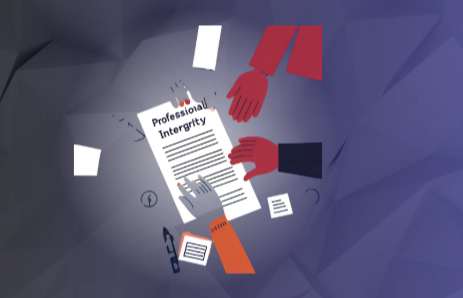The Ethical Edge: Why Professional Integrity Sets Experts Apart

In any industry, professional integrity forms the foundation of long-term success. Clients are more likely to trust and return to those who communicate transparently, uphold their commitments, and operate honestly. Ethics aren’t just ideals—they’re practical tools that shape reputation, relationships, and results. When individuals or teams consistently prioritize integrity, they create a standard that sets them apart.
Teams like Oklahoma City OK real estate experts The Kirby Group exemplify this approach. They are known for placing ethics at the forefront of their practice. Their commitment reflects a broader trend in which clients value character as much as credentials. In an environment where trust is paramount, integrity isn’t optional—it defines authentic leadership and builds lasting confidence.
Building Trust Through Ethical Leadership
Trust is fundamental to any productive professional relationship, especially for leaders. Ethical leadership is anchored in transparency, consistency, and a willingness to hold oneself accountable. Research affirms that ethical leaders foster workplaces with higher engagement, trust, and innovation—demonstrating the far-reaching benefits of integrity.
By modeling honesty and fairness, leaders create environments where employees feel safe to express ideas, take risks, and collaborate. This trust becomes the bedrock of strong, cohesive teams, empowering everyone to excel. Ethical leaders not only inspire those around them but also amplify the reputation of the entire organization.
See Also: AI Face Swap Technology in Live-Action Role-Playing Games
Enhancing Reputation and Client Loyalty
An ethical foundation shapes an organization’s image, attracting clients and partners through trust and transparency. Leaders with strong ethics gain repeat business and lucrative partnerships. Maintaining ethics requires daily effort—transparent communication, fulfilling promises, and addressing challenges strengthen reputation. Trust leads to loyalty, vital in industries relying on referrals, making integrity priceless.
Fostering a Positive Workplace Culture
The internal culture of an organization profoundly affects both morale and productivity. Prioritizing ethics cultivates a respectful, supportive, and inclusive environment where employees feel valued. A 2023 survey found that workplaces with clear ethical standards saw 41% higher employee engagement, reduced turnover, and improved overall performance.
Such cultures also nurture diversity, creativity, and innovation by ensuring every voice is heard and every contribution recognized. Employees who believe in their company’s mission and values are likelier to stay long-term, advocate for their employer, and go the extra mile for clients and colleagues.
Mitigating Risks and Avoiding Legal Issues
Ethical organizations proactively address regulatory challenges, minimizing exposure to legal complications and reputational harm. From transparent reporting practices to diligent compliance initiatives, integrity-driven decision-making forms a robust defense against risk. Scandals or misconduct can quickly unravel years of progress, making ethical vigilance essential in all strategic decisions.
For both individuals and companies, a reputation for integrity signals reliability to regulators, investors, and stakeholders. This proactive stance can translate to fewer audits, lower insurance costs, and reduced likelihood of disputes—creating additional value and peace of mind.
Attracting Top Talent
The modern workforce seeks alignment between personal values and employer ethics. Companies practicing what they preach attract high-performing professionals committed to shared standards. Purpose-driven workplaces attract talent eager to contribute to something greater and reinforce internal ethics. Today’s transparent job market means candidates research reviews, mission statements, and satisfaction scores. As integrity becomes important, ethically recognized companies draw top talent to excel and uplift organizational culture.
Driving Sustainable Success
While unethical shortcuts may seem tempting for quick wins, history shows that these decisions often lead to setbacks that far outweigh temporary gains. Organizations embracing integrity as a core value lay the foundations for lasting growth, resilience, and prosperity. Ethical leaders who inspire teams, build trust with clients, and uphold their reputations foster businesses that withstand challenges and adapt to change.
Clients, suppliers, and partners increasingly seek out organizations known for operating responsibly. Ethical leadership fulfills regulatory and societal expectations and strengthens client loyalty and organizational resilience—positioning businesses for long-term, sustainable achievement.





